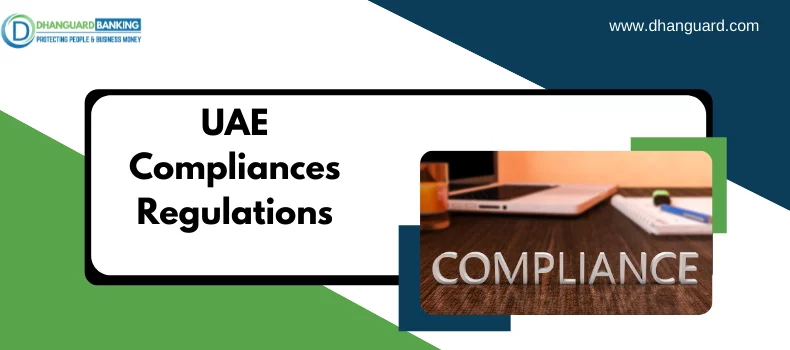For UAE businesses to stay on top of their game, they must constantly assess their financial health. Regularly reviewing financial health is not only good business, but it also gives stakeholders peace of mind. One way to accomplish this is to have the books of accounts examined by recognized audit firms in Dubai. With rising regulatory compliances such as Ultimate Beneficial Ownership (UBO), Economic Substance Regulations (ESR), Anti-Money Laundering (AML), and VAT, the importance of conducting annual audits has become more vital. It's not simple for businesses to balance the demands of regulatory compliance with the need to ensure the accuracy of their financial statements. Our study’s key highlights are UAE Compliance Regulations: AML, UBO, ESR, VAT, which are explained further.
AML Compliance
Companies that violate AML laws have been subjected to increasing scrutiny and harsher fines in the UAE. For failing to comply with AML standards, 200 legal firms had their licenses suspended and were penalized in October 2020. Nine firms and nine persons were convicted to penalties and prison terms a month before the incident for moving funds to various bogus companies to cover illegal oil trading activities. Due to the severity of the penalties, additional due diligence and KYC standards have become necessary. Experienced audit firms in Dubai offer training and advise on how to comply with AML regulations, allowing businesses to avoid harsh penalties.
What is AML Compliance?
The UAE has a sophisticated anti-money laundering system in order to promote transparency and comply with legislation in other foreign jurisdictions. Two laws underpin this system: Anti-Money Laundering (AML) No. 2/2002 and Counter-Terrorist Financing No. 1/2004. (CTF)
AML regulations must be followed by businesses in the financial services and associated industries. This includes financial institutions such as banks and insurers, as well as real estate brokers, accountants, and other professionals. Opening or maintaining accounts in false names, failing to do due diligence, and failing to take essential procedures to identify the risk of crime are all violations of the AML statute. For such offences, fines vary from AED 50,000 to AED 1 million.
Economic Stability Regulation (ESR)
Companies doing ESR-related activities on the mainland, in free zones, and offshore must file a yearly ESR notification and an ESR report with the national assessing authority, which in the UAE is the Federal Tax Authority (FTA). If a company generates revenue from the relevant operations, it must also meet the requirements of the economic substance test. Those who fail to provide annual notifications or any other required documents/information will be fined Dhs20,000, while companies that submit false information on the notification or ESR return will be fined Dhs50,000. If a company fails to file economic substance returns or fails the economic substance test, it would be fined Dhs50,000.
Economic Substance Regulation (ESR), which went into effect in August 2020, requires onshore enterprises to "keep and demonstrate an adequate economic presence" in the UAE. To guarantee that this is the case, UAE onshore businesses engaged in related operations must pass an Economic Substance Test.
This can be done in a variety of ways:
- In the UAE, licensees and related activities are directed and managed.
- In the UAE, relevant Core Income Generating Activities (CIGAs) are carried out.
- In the UAE, the licensee has sufficient personnel, facilities, and spending.
ESR was created by the UAE to deter investors from utilizing the country as a tax shelter. The move brings the country into compliance with the OECD's and the EU's transparent and rigorous legal and commercial standards.
Ultimate Beneficial Ownership (UBO)
Companies that are registered with the Department of Economic Development (DED) must submit beneficiary statements and shareholder registrations to the DED as soon as possible. This is known as a mandatory submission or declaration. These submissions must be accompanied by supporting papers that show the beneficiary and shareholder information is correct. Individuals who own, control, or have voting rights in a firm with at least a 25% stake are known as UBOs. Anyone with the authority to fire the majority of directors and management is included. If no such individual exists, the UBO is defined as someone who has considerable control over the company.
Value Added Tax (VAT)
The UAE's Value Added Tax (VAT) was implemented on 1 January 2018 at a fixed rate of 5%. The new tax was enacted to give the government a stream of revenue other than oil earnings with which to deliver a variety of high-quality public services. If your taxable supply and imports total more than AED 375,000, you must register for VAT in the UAE. If your taxable supply and imports total more than AED 187,500, you can voluntarily register to pay VAT.
A business collects VAT from its consumers and pays it to the government. Any VAT paid to suppliers by a VAT-registered firm can be recovered from the government. In essence, all licensed enterprises in the UAE, with the exception of those owned by the local or federal government, are required to file UBO disclosures.
How to Pay VAT in the UAE?
In order to pay VAT in the UAE, you must first register.
This can be done on the Federal Trade Commission's website. You will be required to fill out an application and provide the following documents:
- Personal information
- Information about how to contact us
- Information on banking
The FTA eServices portal can then be used to submit business information, including VAT returns from people with whom you have a business relationship.
To file a return, follow these steps:
- Click the VAT tab under eServices after logging in.
- Fill out the form completely, including the information of your income and the VAT calculation.
- Send in your tax return.
- Make a payment for VAT.
DhanGuard: All-in-One Solution for Business Setup in Dubai, UAE
DhanGuard is your ultimate one-stop solution for all your business needs. Whether you’re planning to set up a new company or expand your existing business in the UAE, we’ve got you covered with our comprehensive range of services. From Business Setup in UAE and Company Formation in Dubai to managing your financial and legal compliance, we provide everything you need under one roof.
Our services include:
- Company Formation in UAE and Dubai
- Opening a Business Bank Account in UAE and Dubai with a 99% success rate
- VAT & Corporate Tax Compliance
- Accounting, Bookkeeping, and Auditing Services
- Trade License Renewal
- Golden Visa Assistance
Let DhanGuard make your journey of Business Setup in Dubai seamless and hassle-free!








